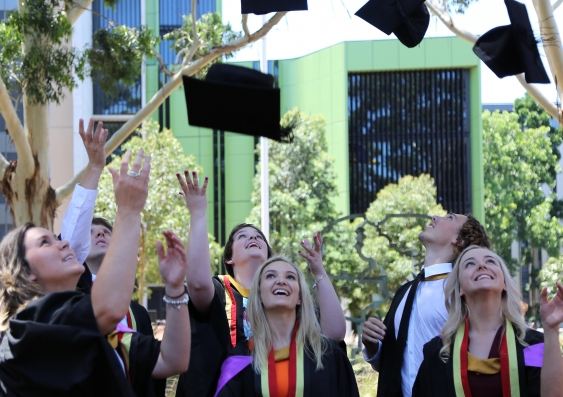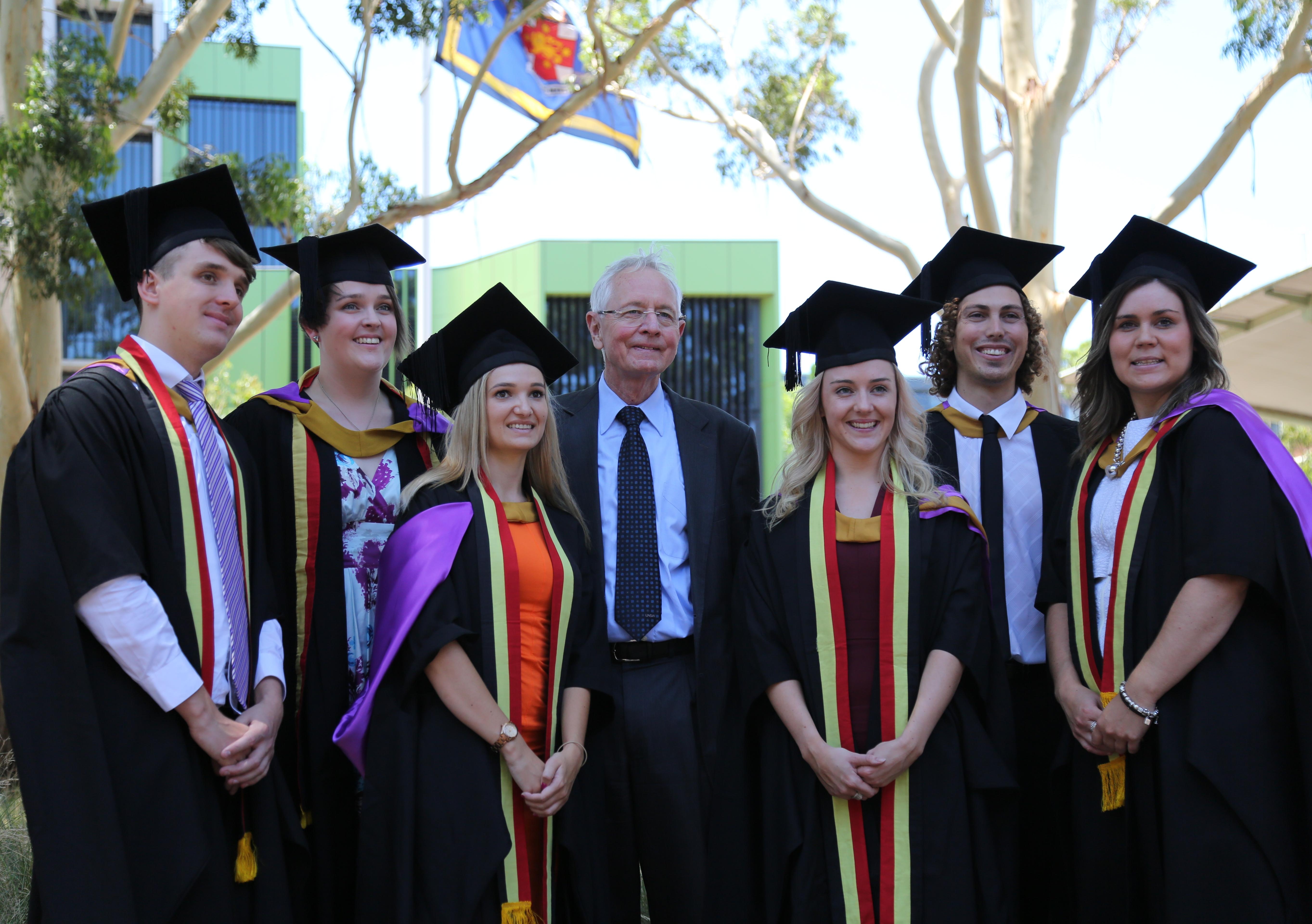Record number of Indigenous doctors graduate from UNSW
UNSW Medicine celebrated a milestone today with the graduation of six Indigenous doctors – the highest number in a single year.
UNSW Medicine celebrated a milestone today with the graduation of six Indigenous doctors – the highest number in a single year.

UNSW Medicine celebrated a milestone today with the graduation of six Indigenous doctors – the highest number in a single year.
The graduations cement UNSW’s place as a leader in Indigenous medical education. Most of the group are the first in their families to attend university and credit UNSW’s unique Indigenous support program and scholarships with helping them to realise their ambitions.
Two of the graduates, Khyarne Biles and Tyron Clayworth, had scholarships provided by The Balnaves Foundation, and all six students received residential scholarships from the Shalom Gamarada program to live on campus.
Biles will return to Dubbo, her hometown, to begin her medical career. She is passionate about improving Indigenous health, and hopes to train as an obstetrician or paediatrician serving remote areas of far west NSW.
“I am an outgoing, hardworking and proud Aboriginal woman who is committed to making a difference to the health outcomes of my people,” says Biles.
Graduate Murray Haar – a Wiradjuri man – started his journey to medical school at UNSW in 2006 when he attended a Nura Gili Winter School, which introduces high school students to the world of tertiary education.
“The support and friendship of my fellow Indigenous medical students had a resounding impact on my ability to succeed through the program – we encouraged one another through some very tough and trying times and carried each other to the finish line,” says Haar, an aspiring psychiatrist or pain medicine specialist who will do his internship in the Albury-Wodonga region.
UNSW launched its Indigenous medical entry scheme in 1998, the same year Dr Kelvin Kong, Australia’s first Aboriginal surgeon, graduated. He had campaigned for greater recruitment of Indigenous students while at UNSW. When Kong started practising, he was one of only 20 Indigenous doctors nationwide.
There are currently 49 students enrolled in the medical program at UNSW – the highest in Australia and a significant proportion of the 310 Indigenous medical students studying nationwide.
Faculty Dean Professor Peter Smith says: “This is an inspiring day for UNSW Medicine as we stand beside these six Indigenous graduating students and look forward to watching them step into the next phase of their lives as doctors. And we know there will be many more of their peers to follow, supported by these valuable scholarships that are showcasing UNSW as a leader in the field.”
The Chair of Aboriginal Health at UNSW and co-founder of the Shalom Gamarada Ngiyani Yana scholarship program, Professor Lisa Jackson Pulver AM, says: “Each student has at some stage been a residential scholar at Shalom College and flourished, overcoming the challenge of time away from family and friends to pursue medicine. Without this scholarship program, many of the students would not have been able to study at UNSW – simply because their financial resources would have precluded living on campus or nearby.” There are currently 28 Indigenous students at Shalom College.
The Balnaves Foundation Indigenous Medical Scholarship program has so far graduated three doctors and is currently supporting another five Indigenous students studying medicine.
Neil Balnaves AO, Founder of The Balnaves Foundation, commended the students on their tenacity and drive throughout their six-year journey: “Our students graduating today are personally helping to close the health gap between Aboriginal people and other Australians.”
These scholarships and the programs and academic and social support services provided by the Nura Gili Indigenous Programs Unit and the Rural Clinical School play a key role in UNSW’s success in recruiting and retaining Indigenous students.
In 2012, UNSW opened Balnaves Place, a new home for Nura Gili. With support from The Balnaves Foundation, the centre has increased UNSW’s capacity to support Indigenous students.
Mr Mick Peachey, student services manager at Nura Gili, has known some of the students since they attended Winter School as teenagers: “We’re proud of all our alumni and all our students who get through their degree because we know how hard they worked, and we’ve walked beside them throughout their studies,” he says, describing the pride that comes with students such as Biles returning to their community as doctors.
Media contact: Denise Knight 0405 207 685 / UNSW Media Office 02 9385 8920
